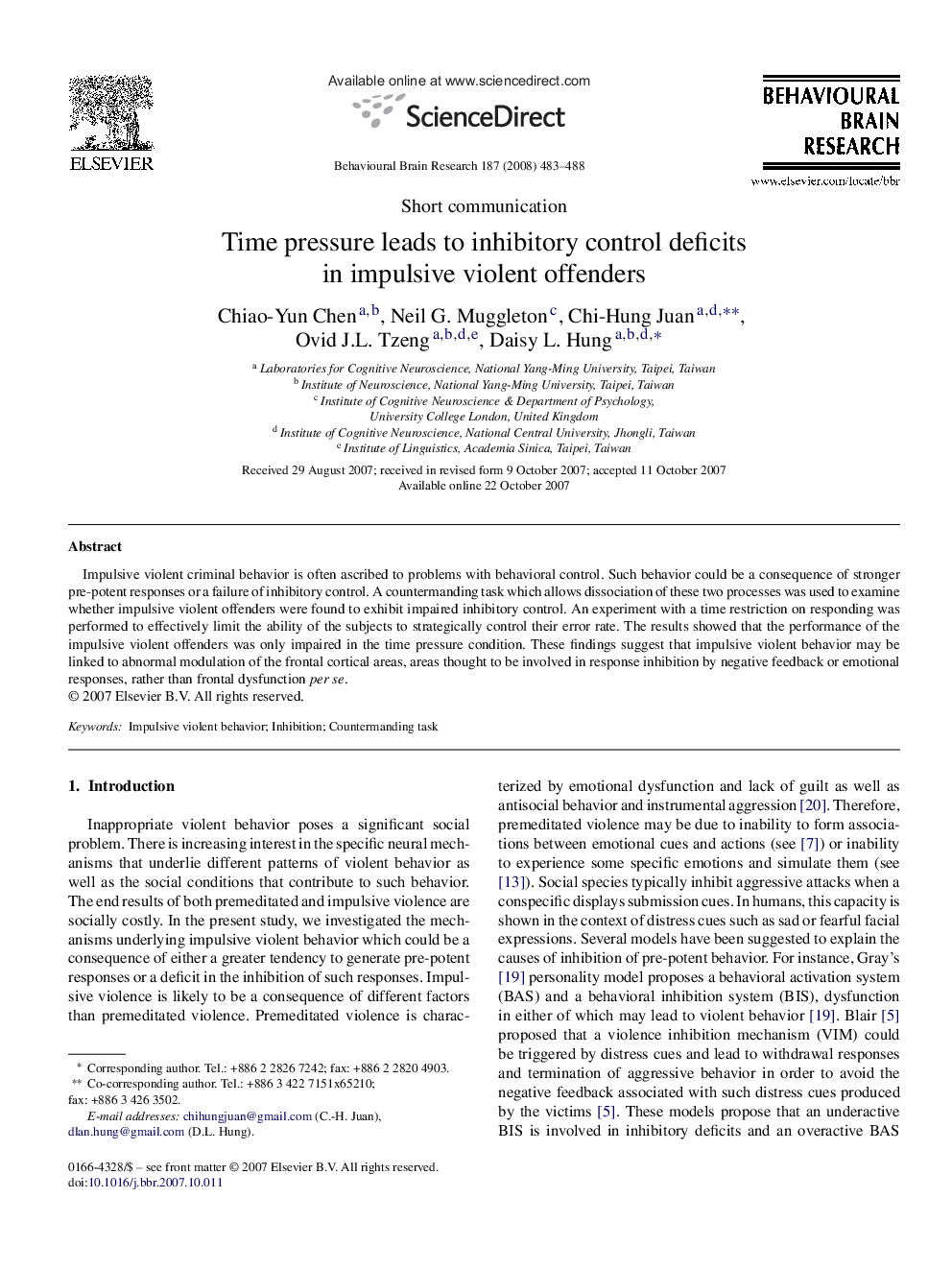| Article ID | Journal | Published Year | Pages | File Type |
|---|---|---|---|---|
| 4315546 | Behavioural Brain Research | 2008 | 6 Pages |
Impulsive violent criminal behavior is often ascribed to problems with behavioral control. Such behavior could be a consequence of stronger pre-potent responses or a failure of inhibitory control. A countermanding task which allows dissociation of these two processes was used to examine whether impulsive violent offenders were found to exhibit impaired inhibitory control. An experiment with a time restriction on responding was performed to effectively limit the ability of the subjects to strategically control their error rate. The results showed that the performance of the impulsive violent offenders was only impaired in the time pressure condition. These findings suggest that impulsive violent behavior may be linked to abnormal modulation of the frontal cortical areas, areas thought to be involved in response inhibition by negative feedback or emotional responses, rather than frontal dysfunction per se.
